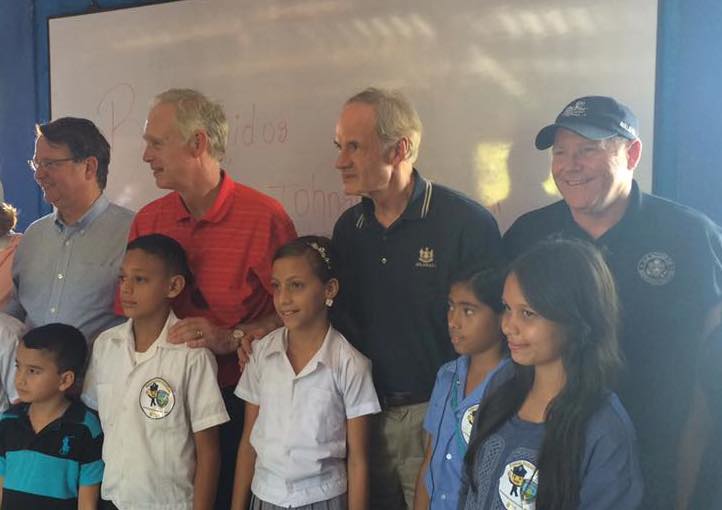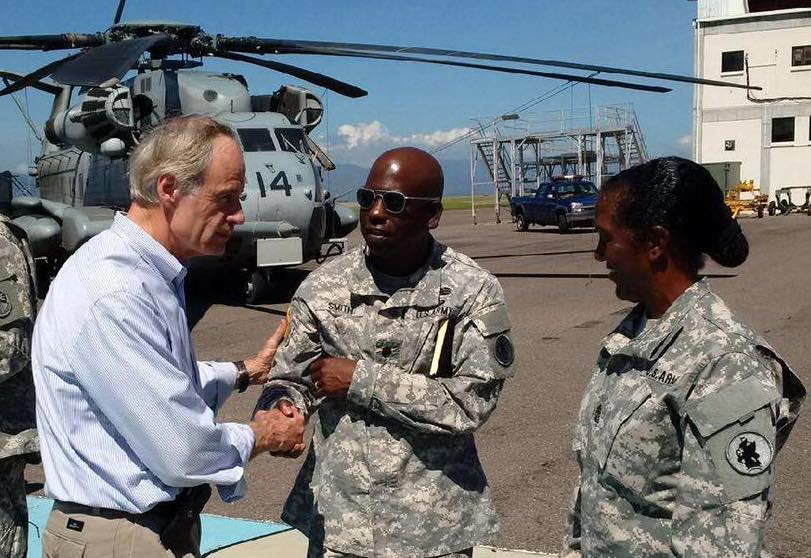- November 7, 2015
Helping our neighbors, securing our borders
Dear Friends,
In mid-2014, we were shocked by the flood of migrants arriving at our southern border from the Central American countries of Guatemala, Honduras, and El Salvador, collectively known as the Northern Triangle. Of particular concern were the thousands of unaccompanied children and families. When they arrived, most did not try to evade Border Patrol agents. They instead sought them out for protection. Most were escaping the violence, poverty, hopelessness, and lack of economic opportunity plaguing their countries.
Our government took emergency steps to shelter and process these individuals, but also put into place strategies to stem the flow. These strategies included public information campaigns on the dangers of the journey, expedited court hearings, an increased focus on dismantling human smuggling and trafficking rings, and support for Mexico’s efforts to better police its own southern border. While these efforts had an impact for a time in slowing migration, the dire and desperate conditions in the Northern Triangle have continued. So has the flow of migrants.
Earlier this week, I joined four of my Congressional colleagues from both sides of the aisle to travel to Guatemala and Honduras and examine the ongoing factors that compel so many children and parents to make the desperate decision to flee the region for the United States. Seeing the conditions many of these families were escaping, I know that if you or I were trying to raise our children there, we might make the same decision to leave.
During our visit, my colleagues and I learned more about a number of international initiatives aimed at alleviating the root causes of this migration we’re seeing, such as efforts to crack down on smugglers, violence reduction programs, job training for at-risk youth, and programs to encourage economic growth. It’s encouraging to see many of these programs begin to bear fruit, and to meet the men and women dedicating their lives to making these countries a better place to live, work and raise a family.
We were also able to see the progress being made by the governments of Guatemala and Honduras to improve conditions in their countries. Leaders there and in El Salvador have made an unprecedented commitment to tackle the difficult challenges they face in a coordinated way through the Alliance for Prosperity, a multi-national strategy to improve the economic and societal conditions in the Northern Triangle.
While we’re seeing progress, we need to do more to support these efforts in the region. That’s why I continue to encourage my colleagues in Congress to fund the President’s request for $1 billion in assistance to the Northern Triangle countries to continue the work they’ve started. These funds are not just a down payment on the future of Guatemala, Honduras, and El Salvador, but will also help make our own border secure.
But let me be clear: this effort cannot rest solely on our shoulders. When I met the leaders of both Guatemala and Honduras, I said, as the Home Depot motto goes, ‘you can do it, we can help.’ Success in addressing the violence, poverty, and hopelessness in the region will take strong leadership from these countries and our other international partners, as well. We have a moral obligation to help our neighbors in the Northern Triangle, partly because our appetite for drugs contributes to the violence and corruption there. But mostly, it is simply the right thing to do.
I invite you to learn more about our trip by visiting my Facebook album: Congressional Delegation to Guatemala and Honduras
Tom Carper

